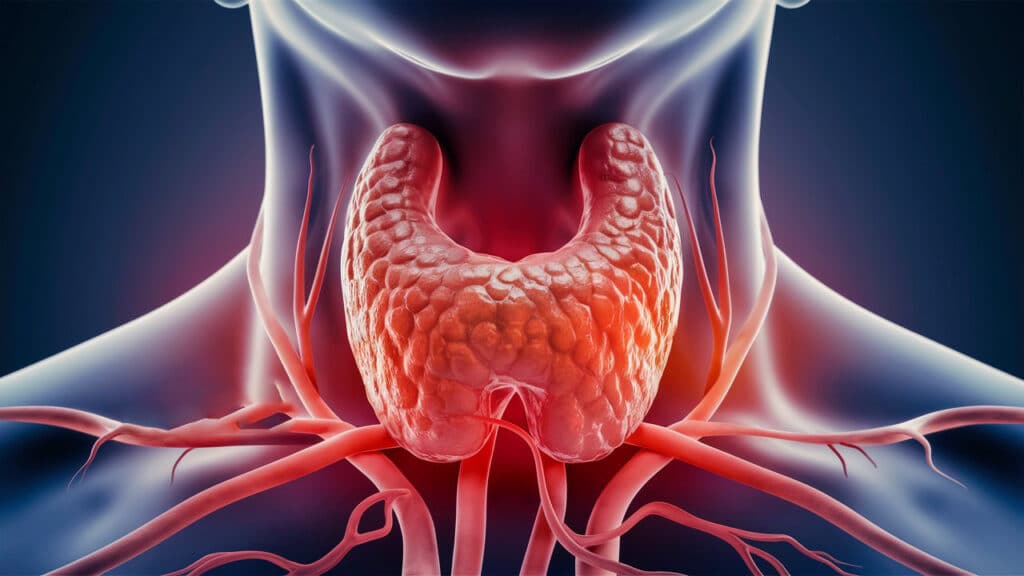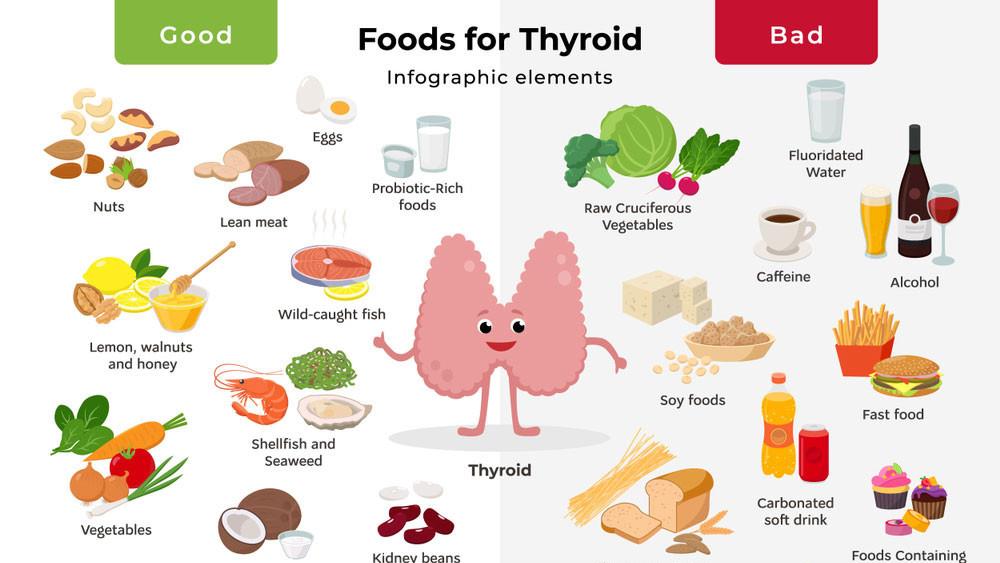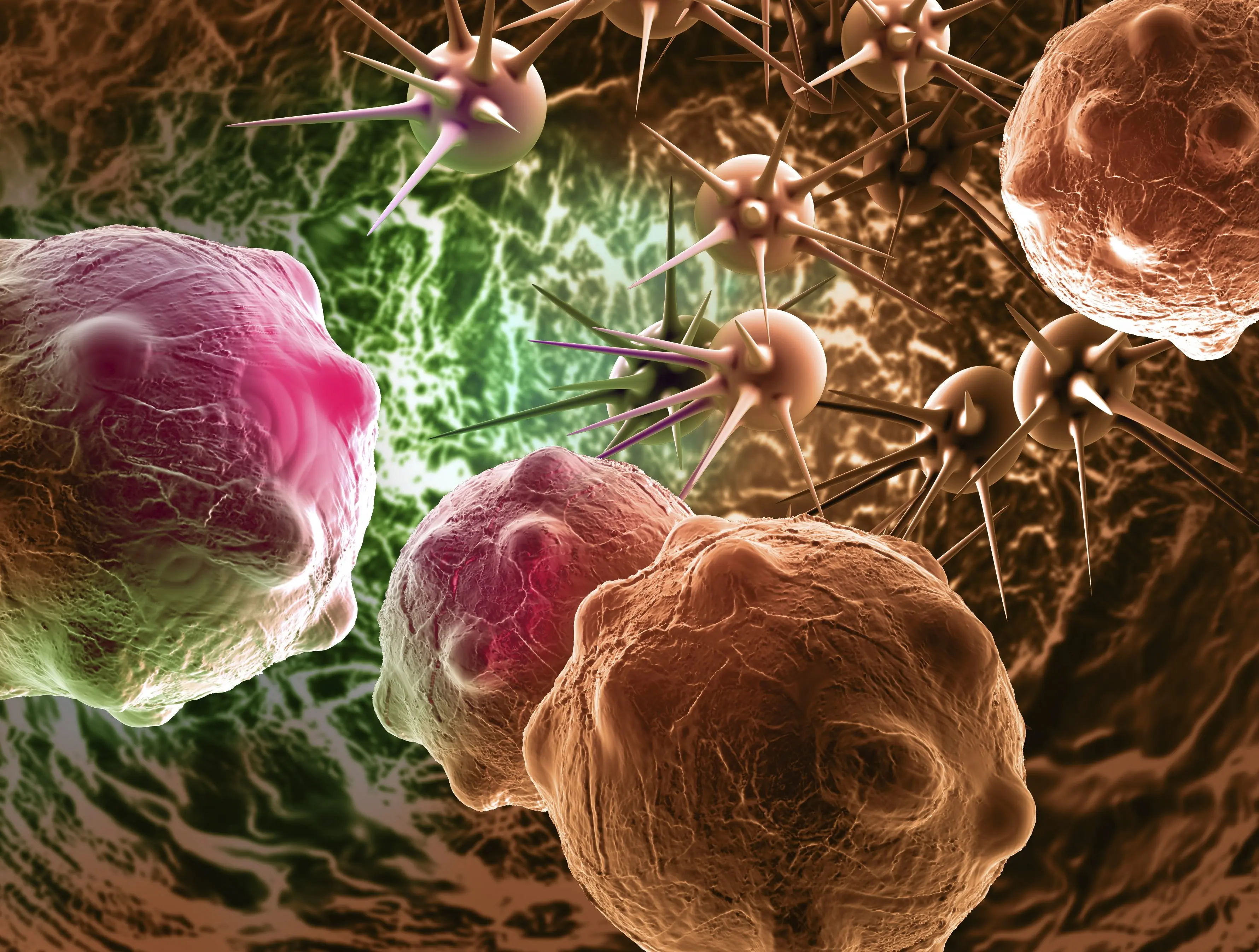
6 Types of Foods That Can Negatively Affect Your Thyroid
6 Types of Foods That Can Negatively Affect Your Thyroid
The thyroid, a small butterfly-shaped gland located in front of your trachea in your neck, is a powerhouse of your metabolic system. It releases hormones that control how your body converts food into energy, and also influences heart rate, body temperature, brain development, mental activity, fertility, and more. When this vital gland doesn't function correctly, it can impact your entire body.
Common thyroid conditions include:
-
Hypothyroidism (underactive thyroid)
-
Hyperthyroidism (overactive thyroid)
-
Goiter (enlarged thyroid)
-
Thyroid cancer
While many thyroid issues are linked to genetics or autoimmune diseases and aren't always preventable, you can still take steps to manage your thyroid health, especially concerning iodine levels. Certain foods, in particular, can negatively affect how your thyroid works.
Foods to Be Mindful Of
Here are six types of foods that can negatively impact your thyroid function:
-
Soy and Soy-Based Products There's been extensive discussion about the negative effects of isoflavones, compounds found in soy products, on thyroid function. Isoflavones can hinder your body's ability to absorb iodine and thyroid medications.
-
Raw Cruciferous Vegetables Similar to soy, goitrogens – compounds found in cruciferous vegetables like broccoli and kale – can reduce iodine absorption. While these vegetables are generally healthy, those with thyroid concerns might want to consume them cooked or in moderation.
-
Gluten For individuals with autoimmune diseases, especially Hashimoto's thyroiditis (a form of autoimmune thyroiditis that causes hypothyroidism), avoiding gluten is often recommended. Gluten can trigger inflammation and immune system flare-ups, potentially worsening the condition.
-
Refined Sugar Refined sugar should ideally be avoided by everyone, but it's particularly detrimental for thyroid health. Its consumption leads to inflammation, increases insulin resistance, and can worsen common symptoms of hypothyroidism like weight gain, mood swings, and brain fog.
-
Processed and High-Sodium Foods Processed foods are notoriously high in sodium, which people with hypothyroidism should aim to limit. Hypothyroidism increases the risk for high blood pressure, and high sodium intake can further exacerbate this risk.
-
Coffee (Especially After Taking Medications) Many of us love a good cup of coffee. However, if you take medications for a thyroid condition, it's crucial to avoid drinking coffee for a few hours after taking your pills. Coffee can significantly reduce the absorption of thyroid medications, by up to 60%, diminishing their effectiveness and potentially slowing down your recovery process.

Foods That Support Thyroid Health
On the flip side, some foods are known to help maintain a healthy thyroid. These include fatty fish rich in Omega-3 like salmon and sardines, eggs, nuts and seeds, seaweed, and fruits rich in antioxidants such as berries, apples, and kiwi. Incorporating these into your diet can be beneficial.
Disclaimer: This information is for informational purposes only and not a substitute for professional medical advice, diagnosis, or treatment. Always consult your physician or healthcare provider with any questions about your health or medications. Do not disregard professional advice based on this information.
News in the same category


Nurse Reveals The Spine-Chilling Truth About What Happens After We Die

One Month Before A Heart Attack, Your Feet Will Give You These 6 Silent Warnings

Striking simulation illustrates the progression of death from cancer

Stage 4 Cancer Survivor's Urgent Warning: Overlooked Minor Signs Can Hide Deadly Disease

Colon Cancer & Your Poop: What to Watch For and When to Get Help

MY STAGE FOUR CANCER SYMPTOMS WERE DISMISSED BY TWO HOSPITALS - I WON'T GET TO SEE MY LITTLE GIRL GROW UP

Doctor Reveals: MRI Scan Of The Face Of A 33-Year-Old Woman Reveals Where All Of Her Filler Went

There Is One Sound A Person Makes That Means They Have Less Than 24 Hours To Live

Warning Signs You Should Never Ignore: The Silent Symptoms Of A Brain Aneurysm

Having This Blood Type Will Make You Age Slower—And It’s Backed By Science

Shocking amount of time one can of soda can take off your life
One can of soda might seem harmless, but when multiplied across days, weeks, and years, the cost adds up - to minutes, hours, and even years of life lost.

Common Backyard Plant May Help Fight Tumors, Diabetes, And High Blood Pressure

Drinking Water On An Empty Stomach: Japanese Water Therapy, What Science Says and More

8 Natural Remedies for Sinus Infections That Work Without Antibiotics

Proven Health Benefits and Uses of Thyme and Thyme Tea

Dancing Proven More Effective Than Antidepressants for Treating Depression, Landmark Study Finds
A major new review suggests that dancing may outperform both medication and other forms of exercise in alleviating symptoms of depression—raising profound implications for how we treat mental health globally.

Eliminating Parabens and Phthalates from Daily Use Reverses Cancer-Linked Changes in Healthy Breast Tissue, Study Finds
A new clinical study reveals that removing parabens and phthalates from daily personal care routines for just four weeks can reverse cancer-associated cellular changes in healthy br3ast tissue, offering a compelling case for cleaner beauty and hygiene pro
News Post

Why Kidney Failure Is Striking The Young—And How To Stop It

Bill Gates reveals profession which will remain '100% human' even after AI replaces most jobs

People shocked after passenger filmed as their phone went through X-ray scanner at airport

Mammoth structures discovered beneath Africa could be 'ancient planet' 4,500,000,000 years old

YouTuber discovers 78-year-old woman who's been keeping her own world alive in a 'dead' game for years

Nurse Reveals The Spine-Chilling Truth About What Happens After We Die

If You See A Man With One Painted Fingernail, Here’s What It Means

One Month Before A Heart Attack, Your Feet Will Give You These 6 Silent Warnings

Six Minutes Beyond Life: What I Saw After Dying And Coming Back

Striking simulation illustrates the progression of death from cancer

Hotel Warning: 3 Disturbing Signs You Should Never Ignore

Air India Crash Passenger Shared Eerie Clip Showing Total Power Failure Hours Before Tragedy

Could Psilocybin Be The Key To A Longer Life? Researchers Are Shocked

If You See A Fence Painted Purple, You Better Know What It Means – Knowing This Can Save Your Life

Stage 4 Cancer Survivor's Urgent Warning: Overlooked Minor Signs Can Hide Deadly Disease

Colon Cancer & Your Poop: What to Watch For and When to Get Help

What Causes Those Strange Ripples In Your Jeans After Washing?

Cardiologist Breaks Down 3 Unexpected Red Flags Of A Weak Heart
